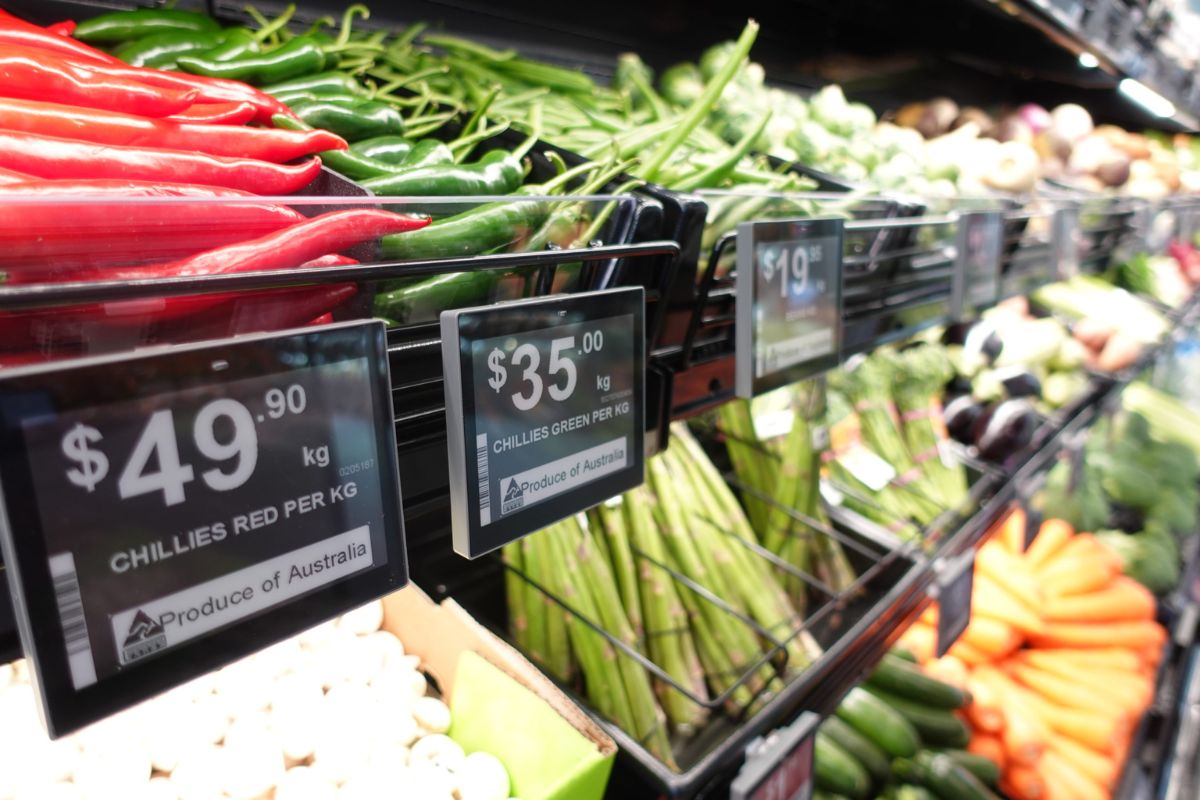

In the ever-evolving landscape of retail, pricing strategies play a crucial role in attracting customers, increasing sales, and maintaining competitiveness. Traditional paper shelf labels have long been the norm, but as technology advances, the retail industry is experiencing a transformation driven by Electronic Shelf Labels (ESLs). ESLs are digital price tags that have the potential to revolutionize the pricing paradigm in retail. Top-rated retail electronics company, Weeklysales explores how ESLs can bring about significant changes in the way prices are managed, displayed, and adjusted, ultimately reshaping the retail industry.
One of the most immediate and impactful changes brought about by ESLs is the enhancement of efficiency and accuracy in pricing management. Traditional paper labels are prone to human errors, requiring constant manual updates, and leading to discrepancies between the advertised and actual prices. Electronic Shelf Labels eliminate these issues by allowing for real-time price updates. With the click of a button, retailers can synchronize prices across all ESLs in the store, ensuring consistency and accuracy. This not only saves time but also reduces the risk of pricing errors, customer complaints, and legal disputes.
ESLs enable retailers to implement dynamic pricing strategies with ease. Dynamic pricing involves adjusting prices in response to various factors such as demand, inventory levels, competitor prices, and even the time of day. Electronic Shelf Labels allow for automated price changes based on these factors, enabling retailers to maximize profits while remaining competitive. Moreover, ESLs facilitate personalized pricing, where prices can be tailored to individual customers based on their purchase history, loyalty, or other data. This level of customization can enhance customer satisfaction and loyalty.
In a highly competitive retail environment, staying ahead of the competition is crucial. Electronic Shelf Labels provide retailers with a valuable tool for real-time competitive intelligence. Retailers can monitor competitor prices in real time and adjust their own prices accordingly. This agile pricing approach can help retailers gain a competitive edge and attract price-conscious shoppers. It also allows for the implementation of price-matching policies, ensuring that customers receive the best possible deals.
ESLs contribute to an enhanced shopping experience for customers. These digital price tags are not only visually appealing but also provide additional information such as product descriptions, reviews, and promotions. Customers can make more informed decisions, leading to higher satisfaction levels. Electronic Shelf Labels can also improve the overall store ambiance by reducing clutter and the visual pollution associated with traditional paper labels.
Another significant advantage of ESLs is the potential for reduced labor costs. Traditional price label updates require considerable manpower and time, especially in large retail stores. ESLs automate this process, freeing up employees to focus on more value-added tasks like customer assistance and inventory management. Over time, this can lead to substantial cost savings for retailers.
ESLs align with the growing trend toward sustainability and environmental responsibility. Traditional paper labels contribute to paper waste and environmental degradation. Electronic Shelf Labels are reusable, and durable, and significantly reduce the need for paper labels. Additionally, ESLs require less energy to operate compared to other electronic displays, further reducing their carbon footprint.
Effective inventory management is essential for retail success. ESLs can be integrated with inventory management systems to provide real-time updates on stock levels. When an item is running low, ESLs can automatically trigger reorder notifications, ensuring that products are never out of stock. This reduces lost sales opportunities and ensures that customers can consistently find the items they are looking for.
ESLs are highly adaptable to various pricing strategies. Retailers can implement strategies such as price bundling, flash sales, and limited-time offers with ease using ESLs. These digital price tags can display countdowns, promoting a sense of urgency among shoppers. The flexibility of ESLs empowers retailers to experiment with different pricing tactics to see what works best for their customer base.
Retailers often face complex pricing regulations and legal requirements. ESLs simplify compliance by providing an auditable trail of price changes. They also allow for easy adjustments to meet regulatory requirements, such as price labeling for perishable goods or displaying tax-inclusive pricing.
In an era of rapid technological advancements, retailers must embrace innovations to stay competitive and relevant. ESLs are not just a trend but a step towards future-proofing retail. As technology continues to evolve, Electronic Shelf Labels can be integrated with other emerging technologies like Internet of Things (IoT) devices, artificial intelligence (AI), and blockchain to create a seamless and efficient retail ecosystem.
These points provided by Weeklysales are proof of how Electronic Shelf Labels has changed the pricing game in the business. Electronic Shelf Labels are not merely a technological upgrade; they represent a fundamental shift in the pricing paradigm in retail. Their ability to enhance efficiency, accuracy, personalization, and customer experience while reducing labor costs and environmental impact makes them a game-changer. ESLs empower retailers to adapt to changing market dynamics, implement dynamic pricing strategies, and stay ahead of the competition. As the retail industry continues to evolve, ESLs will play a pivotal role in shaping its future. ‘Retailers who embrace this technology today are likely to reap substantial benefits in the long run, while those who resist may find themselves struggling to keep up with the changing retail landscape,’ Weeklysales advises.
In an industry built on transformation and beauty, a new report by Europe Surgery highlights…
People routinely process everyday sensory signals such as birdsong and cloth touch along with room…
The person you’re meeting through this article isn’t a teacher, a psychologist, or some expert…
Trade shows are one of the most effective ways to promote your business, build relationships,…
One of the most fulfilling and important duties of a parent is raising autonomous children.…
Building or renovating in Alberta? Then you’ll need to understand the construction rules. They’re there…